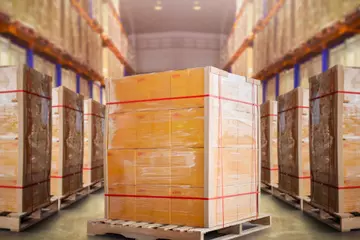From options to decisions: Simplifying the LTL carrier selection process
Beyond providing transportation services, a less-than-truckload (LTL) carrier can be a strategic partner in optimizing your supply chain. However, because LTL providers offer a range of services, pricing structures, transit times and service areas, it can be challenging to compare them effectively.
Make the process easier by considering your business goals and ensuring the carrier you select is positioned to help you achieve them.
What to look for in an LTL partner
Use these factors to help determine which LTL provider is best for your business:
Proximity to your markets
There are multiple types of LTL carriers, and not all of them will operate in the areas you need service. Even if they do, their location may result in higher costs or transit times. Before working with a carrier, ask about their coverage area and how present they are where you ship.
Choosing a company that’s close to your current markets and available in areas you plan to expand to can lead to faster, more cost-effective and more reliable service, ultimately improving the experience for both you and your customers.
Ability to scale
Most businesses need to work with an LTL carrier that can accommodate business growth and seasonal fluctuations without disrupting their supply chain. Whether you need to ship more frequently, increase the volume of each shipment or expand into new regions, a carrier that can adapt to your evolving requirements makes for a good long-term partner.
Fair pricing
While the lowest price can sometimes be the best option, it’s often better to consider if the rates reflect the value of the service you’ll receive. If carriers offer low costs but have issues like delayed deliveries or damaged goods, it could negatively impact operations and customer satisfaction.
You can make sure pricing aligns with service value by comparing rates from multiple carriers and looking into performance metrics, such as on-time delivery rates and claims ratios. This will help you make an informed decision that keeps you competitive.
Learn more about LTL pricing options and how to negotiate with providers.
Regulatory compliance
Depending on your industry and markets, there may be specific requirements for shipping your freight. For example, shipments may need to comply with regulations related to labeling, documentation, customs clearance or product integrity. Working with an LTL provider experienced in handling shipments like yours can help ensure effective transportation.
Technology options
Review each carrier’s technical capabilities to see what you can streamline in your supply chain. Automating processes like booking, tracking and documentation can help reduce operational costs associated with manual data entry. It can also lead to cost savings by decreasing disruptions, fines or penalties due to errors.
Whether you're shipping a few LTL pallets or managing a complex supply chain, technology can support day-to-day operations, expansion into new markets, and changes in shipping volumes or requirements.
Additional services
As your business evolves, you may need options outside of traditional LTL services. That’s why it’s important to find a carrier that can offer additional options, such as expedite shipping and specialized handling, or value-added services like warehousing and distribution. The ability to tap into customized solutions can help optimize your supply chain and better serve your customers.
Consider ArcBest LTL carrier, ABF Freight
Choosing the right LTL shipping partner is crucial for any business. That’s why many shippers choose ABF Freight. With more than 100 years of experience, ABF is the best choice for shippers looking for reliable service, nationwide coverage and advanced technology.
Learn more about ABF and other ways to ship LTL with ArcBest.






